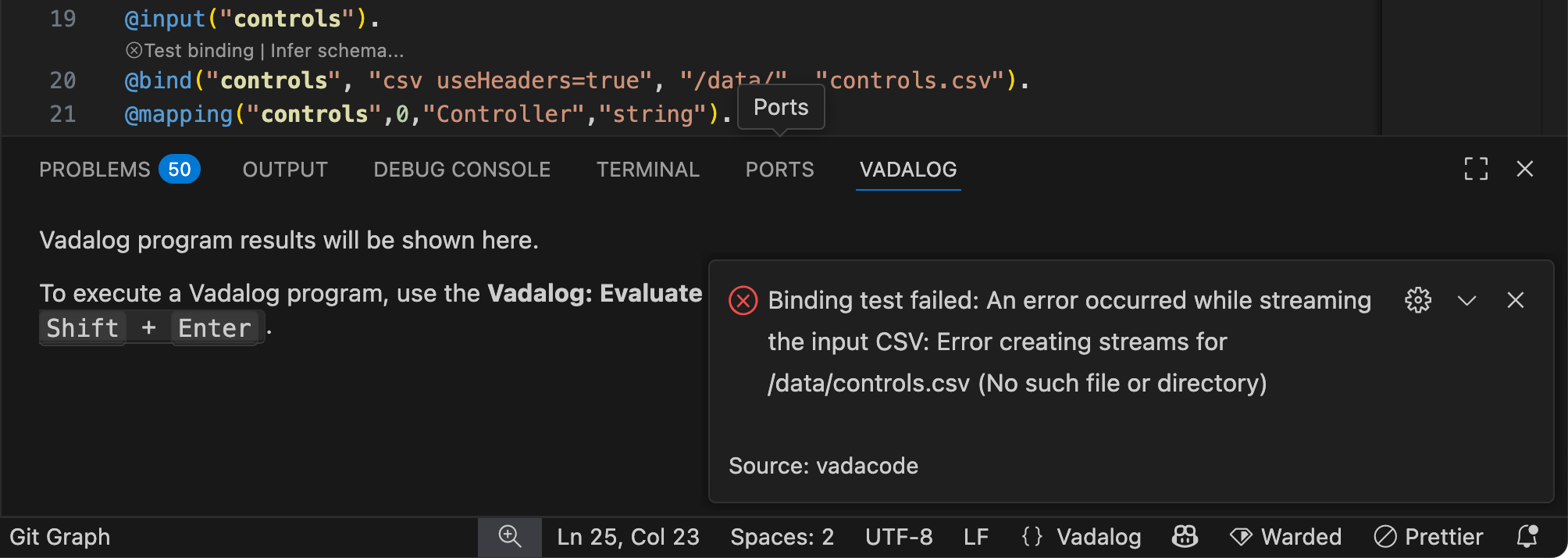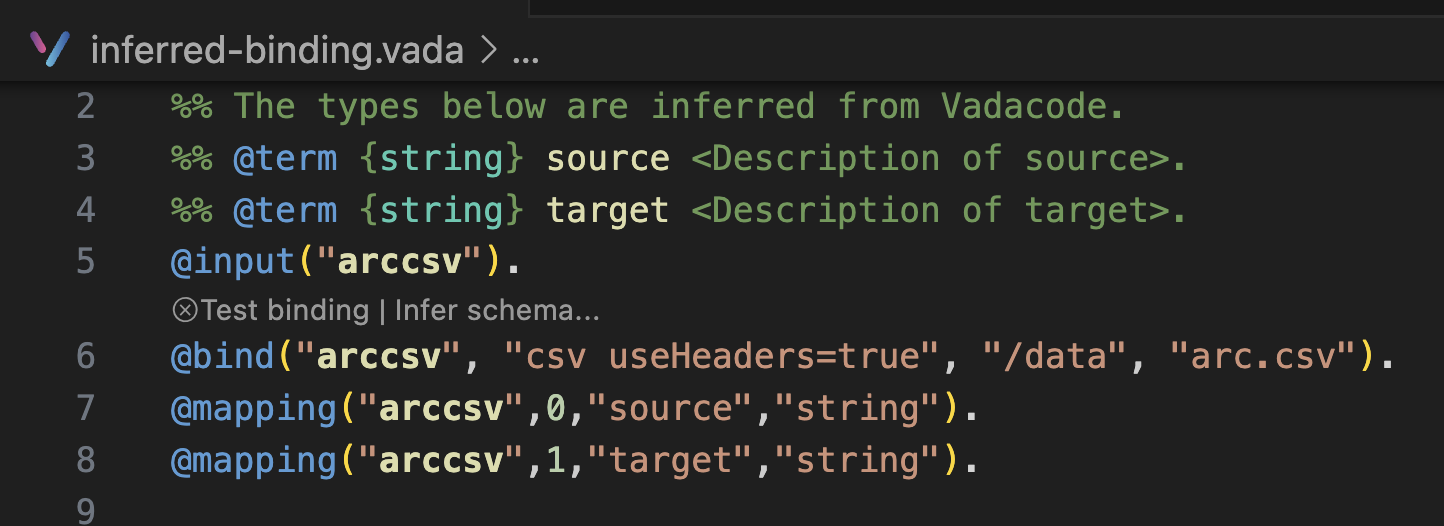Binding actions
Datalog+/- language supports data source binding through the @bind annotation. Vadacode improves user experience with binding with a set of specific actions.
@input binding actions
When you declare an @input binding, you get two handy inlay buttons: Test binding and Infer schema….

Action: Test binding
This action allows you to test the binding by executing a stub Datalog+/- program that the binding runs without any errors. It is useful for verifying that the binding is correctly set up and that the data can be retrieved as expected; in case of errors, the action will show an error message with details about the issue, coming directly from the reasoner.

Action: Infer schema…
With Vadacode you can even infer the schema of the data source you are binding to.
Under the hood, this action executes a stub Datalog+/- program that, thanks to a copy rule, inputs facts from the data source and outputs them for being read by Vadacode. The schema is then inferred from received data, and Vadacode enriches the @input binding with @mapping statements and the input predicate documentation using Vadoc format.
| This feature requires the external reasoner. |

The user is requested for the number of rows to read from the data source to infer the schema.
Since the @bind annotation does not specify the breadth of the data to be read, the user is requested for the number of columns to infer the schema for; if the specified number of columns is greater than the actual number of columns in the data source, the inference will fail.
|